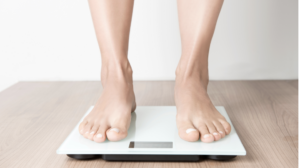False Fitness Advice To Avoid
Fitness is a popular topic these days. Everyone wants to know how to get in shape and stay in shape. However, there is a lot of misinformation out there about fitness. This article will dispel some of the myths about fitness and tell you the truth about what to do and what not to do when getting in shape.
With so much information out there about fitness and working out, it can be tough to separate the good advice from the bad. Unfortunately, some of the worst fitness advice is also some of the most popular.
Why? Put simply, people like being told what they want to hear. Everyone wants to believe losing weight is easy, that there’s some sort of ‘magic pill’ to solve their weight loss problems – but sadly, that’s just not the case. Here are a few examples of what bad fitness advice can look like.
One of the most common pieces of bad fitness advice is to “just do whatever you enjoy.” While it’s true that you’re more likely to stick with an exercise routine you genuinely enjoy doing, this doesn’t mean that any activity can be classified as “exercise” no matter how enjoyable it is. To get the health benefits associated with exercise, you need to be doing something that elevates your heart rate and gets your muscles working. So, while taking a stroll through the park may be enjoyable, it’s not doing much to improve your fitness level.
But, that doesn’t mean that walking or light exercise don’t have their place in a fitness or weight loss routine. Celebrate even the small wins! It also depends on where you are on your fitness and weight loss journey. If you’re starting at zero, then adding some light exercise into your daily routine may be the first awesome step in your weight loss journey – and that’s great! You’ll see some benefits, but remember that to progress and change your body, you will also have to continually progress and change your fitness routine and diet too.
Common fitness advice that is actually bad
There is a lot of advice about how to stay fit and healthy. Unfortunately, not all of it is good advice. Here are a few pieces of standard fitness advice that you should ignore:
- You need to sweat to lose weight
- More protein is always better
- You should avoid all fats
- Cardio is the best for weight loss
- You need to work out for hours every day to see results
- Lifting weights makes you bulky
- You need to eat less to lose weight
- You shouldn’t eat after a workout
Now let’s dive into a few of these:
Sweating does not necessarily mean you are burning fat.
When it comes to sweating and fat loss, there is a lot of misinformation out there. Many people believe that if they are sweating, they must be burning fat. However, this isn’t always the case
Several factors can affect how much you sweat, including your environment, exercise intensity, and body composition. While sweat can be a good indicator of how hard you’re working, and while you may be reducing your total body weight by losing water, it’s not necessarily an indicator of fat loss.
So, if you’re looking to shed some pounds, don’t rely on sweating as your only marker of progress. Instead, focus on other factors such as body composition and how you feel overall!
Cardio is the best way to lose weight: not true
Most people think that to lose weight, they need to do a lot of cardio. Again, not true. Cardio is not always the best way to lose weight. Sometimes it can be counterproductive.
Here’s the thing: when you do a lot of cardio, you burn a lot of calories. But most of those calories are coming from your glycogen stores. Glycogen is just stored sugar – so when you’re doing a lot of cardio, you’re essentially just burning sugar.
Don’t worry, burning sugar isn’t a bad thing. But if your goal is to lose fat, then you want to be burning mostly fat. And that’s where other forms of diet and exercise come in.
You have to work out for hours to see results: false
Thankfully, you don’t have to spend hours working out to see results. You might be better off spending less time working out – who knew?
If your goal is to lose weight, then you don’t need to work out for hours. You can see results by working out for just 30 minutes a day.
Working out for long periods can be counterproductive if you start producing cortisol (AKA the stress hormone). When your body starts producing cortisol it may put your body in a catabolic state! Meaning that if you work out for too long, you might start to burn muscle instead of fat.
Lifting weights will make you bulky: only if you want to
Lifting weights is a great way to lose weight, but many people worry that it will make them bulky. This is only true if you want to be bulky! If you lift weights intending to lose weight, you won’t get bulky. Instead, you’ll see a decrease in body fat and an increase in muscle mass. In other words – your body composition will change!
Lifting weights burns more calories than cardio exercises like running or cycling, so it’s ideal for those who are looking to lose weight as it can put you in a caloric deficit. In addition, lifting weights strengthens your bones and muscles, which can help prevent injuries in the future.
So don’t be afraid to pick up some dumbbells at the gym! Lifting weights can help you achieve your weight loss goals without making you look like the hulk!
You need to eat less to lose weight: wrong
For years we’ve been told that the key to weight loss is simple: eat less and move more. But new research is proving this statement to be false. You may need to eat more – not less – to lose weight.
It turns out that our bodies are very good at regulating how many calories we burn each day. When we reduce calories, our bodies adjust by burning fewer calories. This is why it can be so difficult to lose weight by eating less – our bodies are working against us!
When we do manage to lose weight by eating less, we often end up gaining it all back (plus more). This is because once we start eating normally again, our bodies go into “starvation mode” and hold onto every calorie they can get their hands on.
So what is the answer? Eat foods higher in nutrition and lower in calories. Raw vegetables will have higher water content which can make you feel fuller faster (and aids in digestion!). Work on eating the right foods – and stay away from poor food choices with little to no nutritional value.
You shouldn’t eat after a workout: no, refuelling is key
Not eating after a hard workout might train your body to think it isn’t going to be fed after a stressful situation. Your body might start retaining calorie reserves unless you train it properly by eating something small post-workout (or timing one of your meals!).
And what should you eat? A mix of protein and carbohydrates is ideal. Protein helps rebuild muscle, while carbs give you energy. So try a post-workout snack like yogurt with fruit or whole grain toast with protein mixed peanut butter!
A lot of people think that working out means they can eat whatever they want afterwards. But that’s not the case! Remember to eat healthy protein and carb sources. Eating after a workout is key to refuelling your body and helping your muscles recover.
If you don’t eat after a workout, your body will start to break down muscle for energy. This can lead to fatigue, muscle loss, and even weight gain. So make sure to eat something within 30 minutes of finishing your workout.
All in all, it’s important to be careful with any fitness advice!
In conclusion, be careful with fitness advice! Many so-called experts are giving advice that isn’t backed by science or can even be dangerous for some. Get your information from credible sources and always consult with a doctor before starting a new exercise routine!
It’s important while on your fitness and wellness journey to seek to understand your health and physical fitness better. Ask credible people, and remember that everyone is on their unique journey and what might work for some may not always apply to you or where you are in your journey! Good luck!




